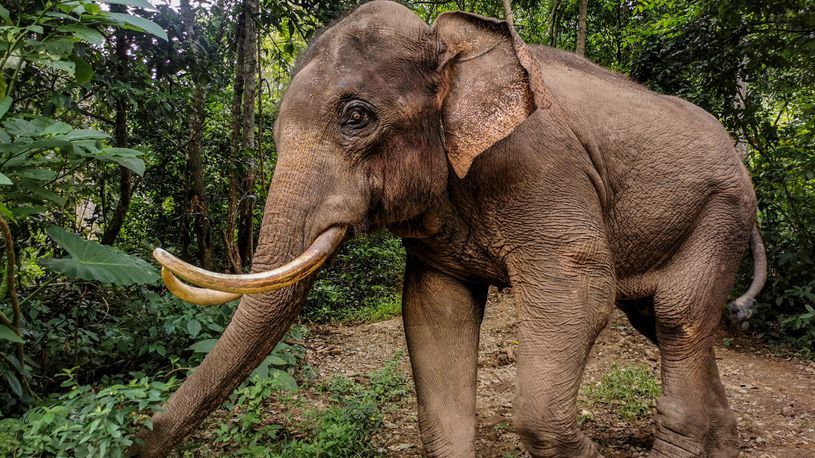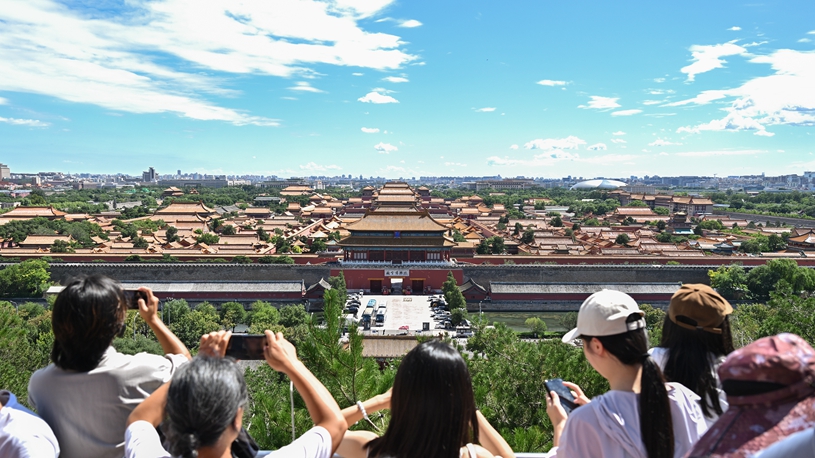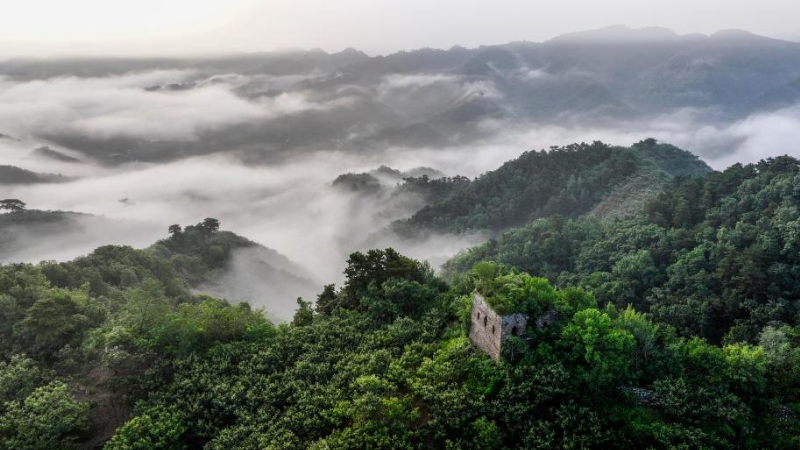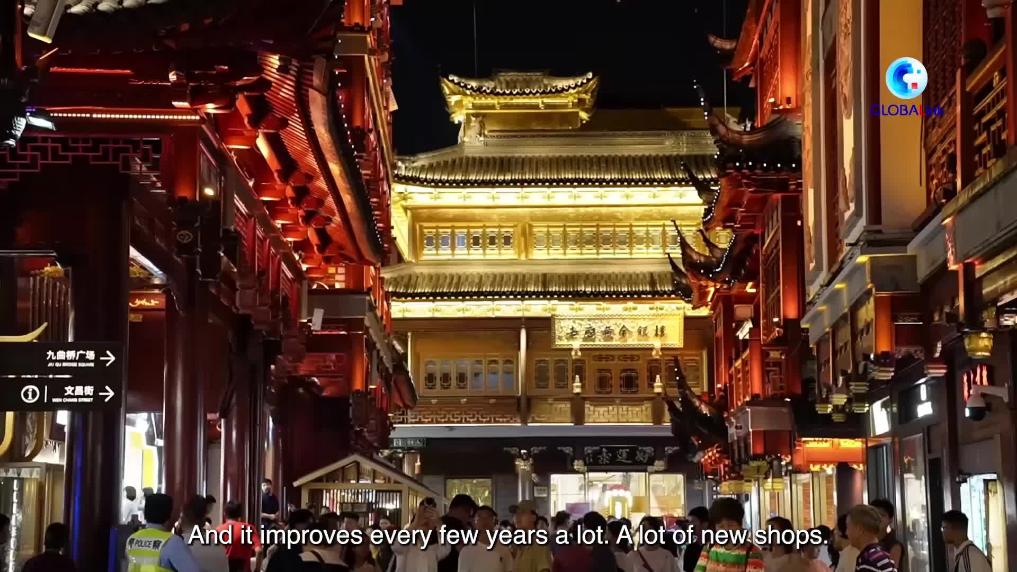KUNMING, Aug. 13 (Xinhua) -- Around 7:30 a.m., Su Mingxue, a fresh-faced tour guide, assembles a group of adventurers for a unique one-day expedition. Their destination is not a typical tourist hotspot but a tranquil hill on the outskirts of Kunming, southwest China's Yunnan Province.
Su and her group assume the roles of "mushroom hunters," reveling in the delight of foraging for wild fungi. This type of one-day foraging tour has become a burgeoning trend in Yunnan's summer tourism sector this year. Many visitors make a special journey to Yunnan to partake in these tours, as the province's abundant rainfall and moderate temperatures usher in a prime season for wild fungi each summer.
Known as China's "kingdom of plants," Yunnan boasts unparalleled biodiversity due to its unique natural conditions. It is home to approximately 900 varieties of edible wild mushrooms, representing over 90 percent of the country's total. These fungi are cherished seasonal delicacies for the locals across Yunnan.
Since last year, Yunnan's wild mushrooms have gone viral on social media, both in China and internationally. Enthusiastic foodies and netizens endearingly refer to them as "magic mushrooms," recognizing their exquisite taste but also cautioning that improper cooking can lead to hallucinations.
Su and her husband have been operating a wild-mushroom business in Kunming for several years. During the season, their business flourishes as wild fungi emerge from the earth.
Earlier this year, numerous customers expressed a desire to personally experience wild-mushroom foraging rather than merely purchasing them. Su arranged a tour for them, sharing pictures and videos on social media platforms, and these unexpectedly drew the attention of many netizens. The success of this first venture inspired her to develop the "fungi-picking tour" as an addition to her business offerings.
After a scenic hour-long drive, Su led her group of nine to a village on the periphery of Kunming, where villager Li Xue was eagerly awaiting the arrival of the mushroom-picking group. The area around the village features several hills, considered ideal for mushroom foraging.
"On sunny days after a period of heavy rain, a variety of fungi flourish in the hills," Li explained, distributing raincoats and gloves to the group and sharing tips on foraging in the forest, including information on the growth of wild fungi, hiking skills, techniques for discovering wild fungi and methods for signaling by shouting.
The mushroom-themed tours are typically led by an organizer and a seasoned local to ensure an enjoyable and safe experience. They often last for half a day or a full day, and offer participants a range of activities such as foraging for fungi, taking photographs and indulging in a fungi feast.
These exciting and novel tours have become increasingly popular among younger demographics. Guo Shuqi, hailing from north China's Shanxi Province, made her second trip to Yunnan this year specifically for mushroom foraging.
Guo describes the experience as "an adventure into nature," noting that "the immersive experience combines hiking with enjoyment." During her day trip, Guo collected various wild fungi, including one called "lurid bolete," which gave her a profound sense of achievement.
Su said that the tour fees, often determined by the number of participants and the location, range from 100 yuan (about 14 U.S. dollars) to 300 yuan per tourist. In July alone, she hosted over 800 tourists, generating an income of around 200,000 yuan.
"Safety is paramount," Su said, adding that she has chosen several villages where she has been purchasing wild fungi for years to ensure familiarity with the local weather and terrain. In addition to providing outdoor-activity equipment and pre-trip training, she also secures insurance for all participants.
Su also allocates a portion of her income to the local villagers to mitigate any impact on their fungi industry.
In Wang Kaiyu's hometown of Chuxiong Yi Autonomous Prefecture, one of Yunnan's key wild-fungi producing areas, these tours are seen as a golden opportunity.
Wang, 25, recently returned to his hometown after graduation and began posting videos about the cultivation and processing of wild fungi on social media, leveraging his expertise in filming and editing to create engaging science videos and enticing more fungi enthusiasts to visit his hometown.
"The fungi season lasts from June to September, offering new opportunities for summer tourism," Wang said, noting that the mushroom-themed tours not only help enrich local tourism activities but also contribute to the growth of the local hotel and catering industries.
"I really look forward to guiding more tourists in experiencing the joy of mushroom picking in the coming months," Wang said, adding that Yunnan residents cherish these wild fungi as gifts from nature and reflections of a healthy ecology. As such, he is also committed to promoting ecological protection for sustainable development alongside his tourists. ■












